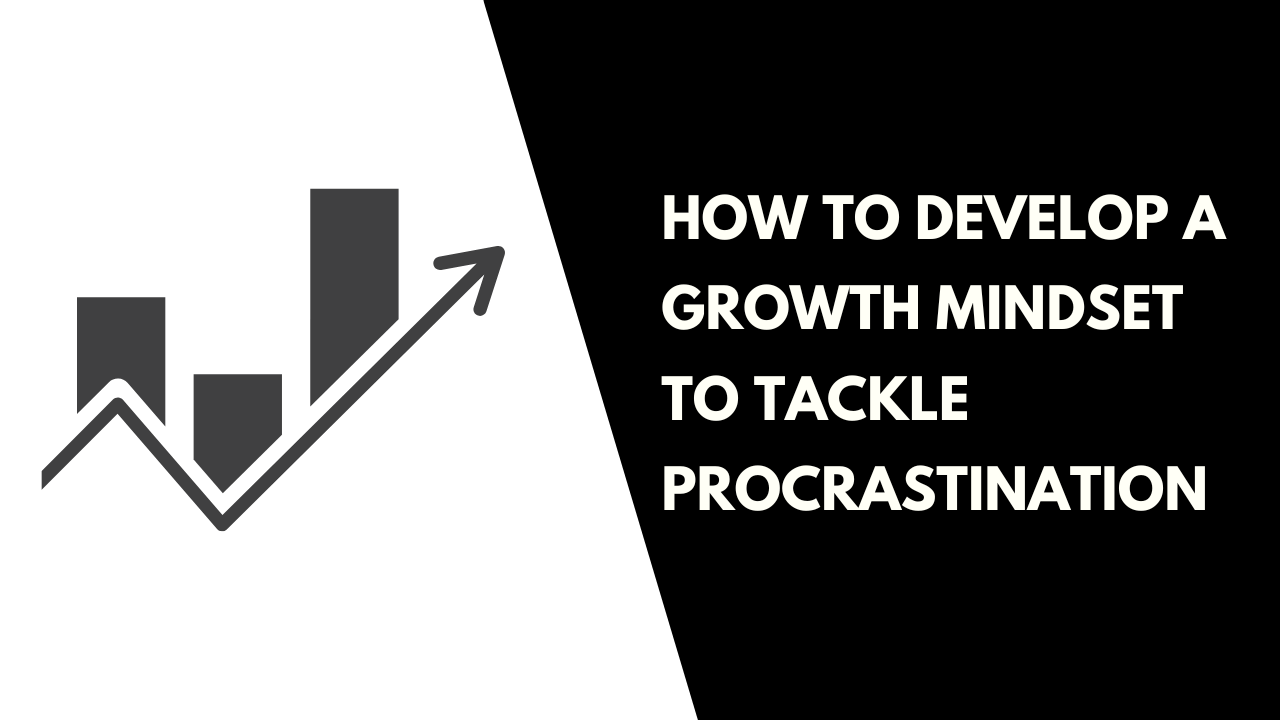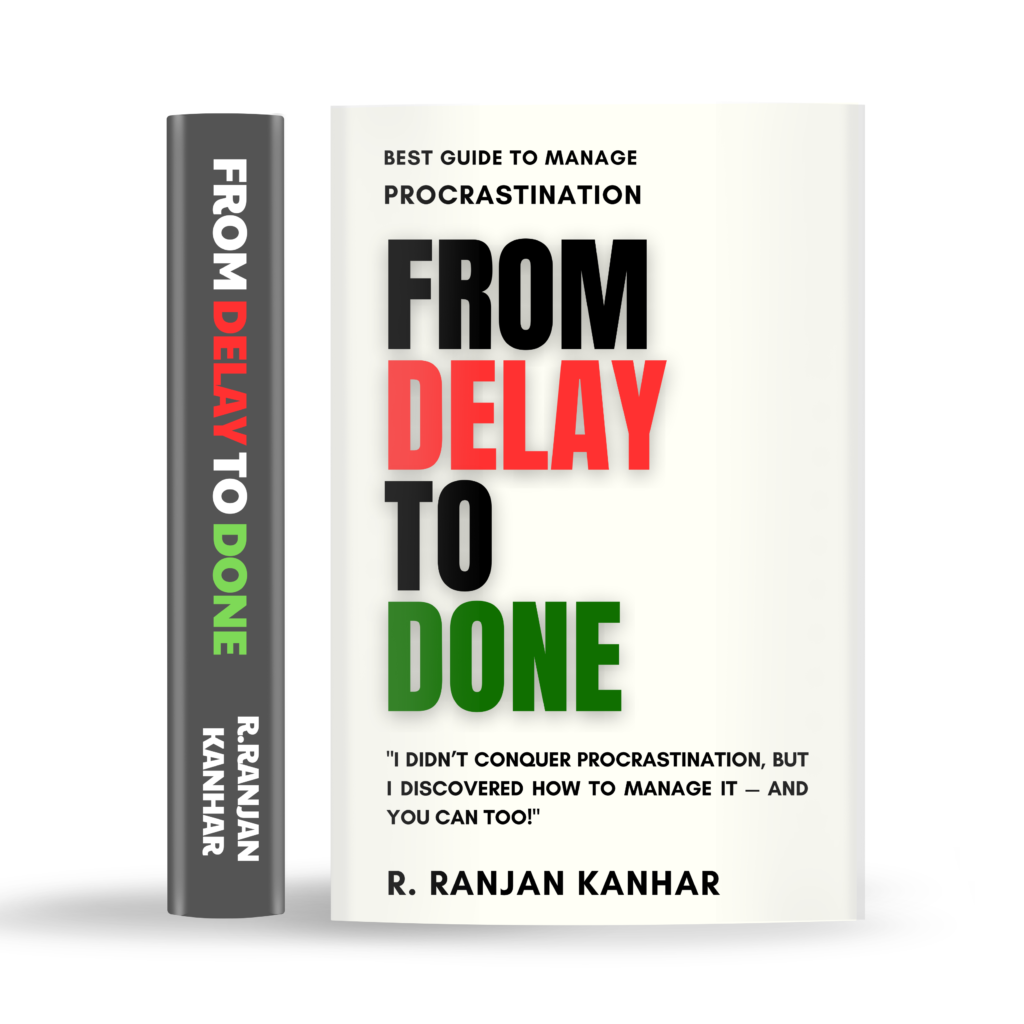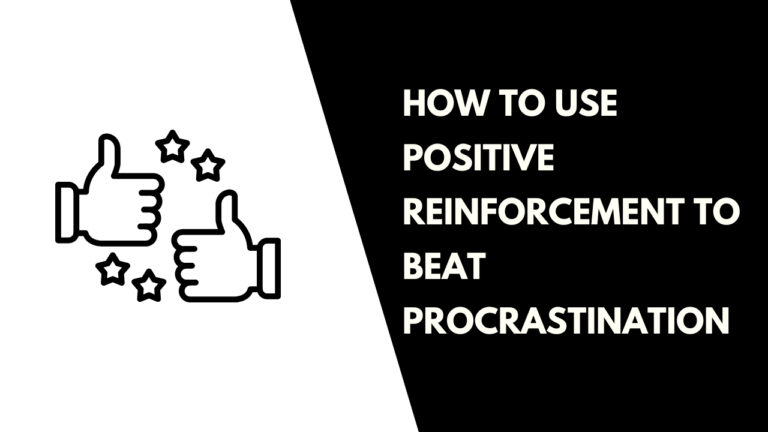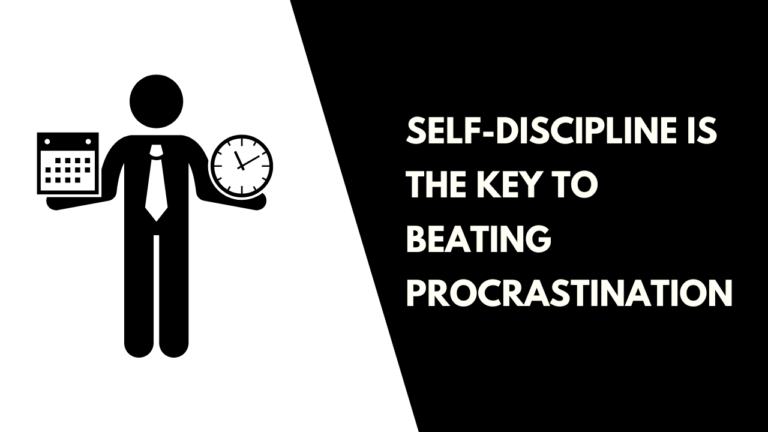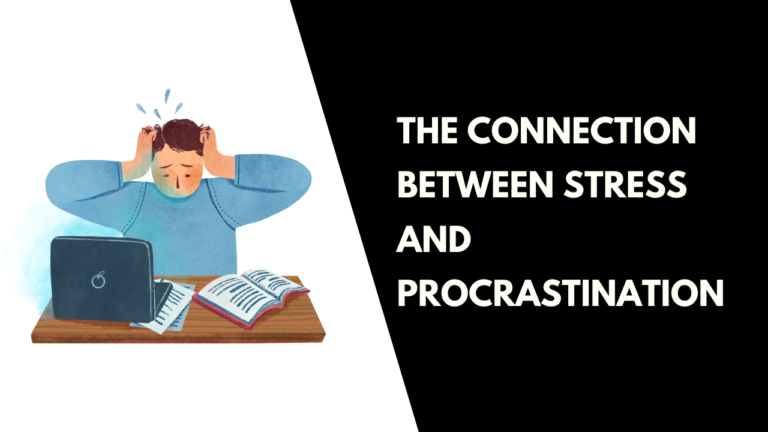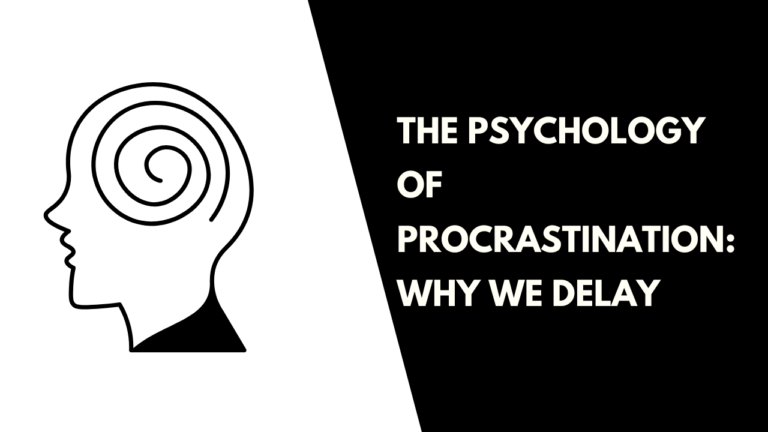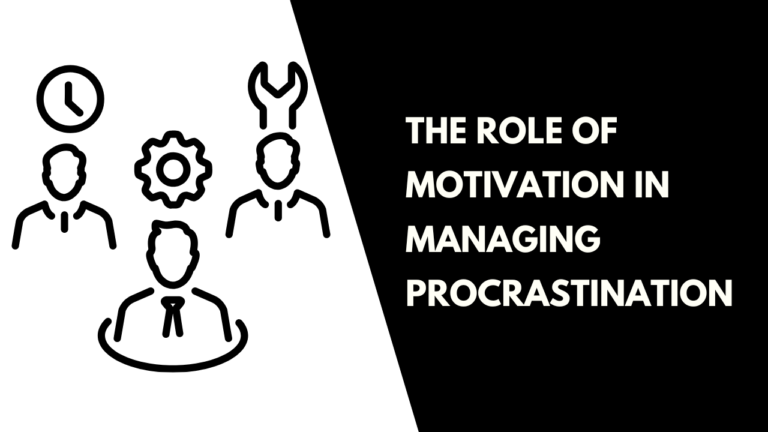How to Develop a Growth Mindset to Tackle Procrastination
Introduction: The Link Between Mindset and Procrastination
We’ve all been there—sitting in front of a task, knowing we need to start but somehow convincing ourselves, “Maybe later.” The cycle continues, and deadlines loom closer. Procrastination isn’t just about laziness; it’s often tied to our mindset.
Table of Contents
ToggleMany people assume procrastination is a lack of willpower, but in reality, it’s deeply connected to how we perceive challenges. If we believe our abilities are fixed and unchangeable, we avoid tasks that seem difficult. On the other hand, if we adopt a growth mindset to tackle procrastination, we begin to see challenges as opportunities for learning rather than obstacles.
In this blog, we’ll dive deep into how to stop procrastination by shifting our mindset and embracing growth-oriented thinking.
What Is a Growth Mindset?
Psychologist Carol Dweck introduced the concept of a growth mindset, which emphasizes the belief that abilities and intelligence can be developed through effort and learning. It refers to the belief that intelligence, skills, and abilities are not fixed but can be developed through effort, learning, and persistence.
Growth Mindset vs. Fixed Mindset
| Growth Mindset 🧠 | Fixed Mindset 🚫 |
|---|---|
| Challenges are opportunities to grow. | Challenges mean failure and should be avoided. |
| Effort leads to improvement. | Talent is fixed; effort doesn’t change much. |
| Mistakes are part of learning. | Mistakes define intelligence and competence. |
| Feedback is valuable for growth. | Feedback is criticism to be avoided. |
When you have a fixed mindset, you’re more likely to procrastinate because you fear failure. However, when you shift to a growth mindset to tackle procrastination, you begin to see setbacks as stepping stones rather than roadblocks.
Why Do We Procrastinate?
Before we discuss solutions, let’s identify the common reasons why people delay tasks:
- Fear of failure – “What if I don’t do it well?”
- Perfectionism – “It’s not perfect yet; I’ll start when I’m ready.”
- Lack of Motivation – “I’m just not in the mood to do it right now.”
- Feeling overwhelmed – “This task is too big; I don’t know where to start.”
- Instant gratification – “I’d rather scroll through social media than work.”
A growth mindset to tackle procrastination helps reframe these thoughts, making it easier to take action instead of delaying tasks.
How to Develop a Growth Mindset to Tackle Procrastination
1. Reframe Your Thoughts: “Progress Over Perfection”
Many procrastinators delay work because they aim for perfection. The problem? Perfection is an illusion! Rather than chasing perfection, prioritize consistent progress.
🔹 Example:
Sarah, a freelance writer, often procrastinated on writing assignments. She feared her work wouldn’t be “perfect” and delayed starting. However, she decided to adopt a growth mindset to tackle procrastination by shifting her focus to completing a “good enough” first draft. This change allowed her to start her work without anxiety.
Actionable Step:
Start with a rough draft, no matter how messy it looks. Improvement happens in the revision phase, not before you start!
2. Break Down Tasks to Avoid Feeling Overwhelmed
Procrastination often stems from feeling overwhelmed. Large tasks appear impossible, making us delay them. The trick? Break them into smaller, manageable steps.
🔹 Example:
A college student, Rahul, had to write a 5,000-word dissertation but kept procrastinating because the task seemed huge. Instead of trying to complete the entire project in one go, he broke it down:
- Research for two days
- Create an outline
- Write 500 words per day
By focusing on one small step at a time, Rahul made steady progress and stopped procrastination.
Actionable Step:
Break your tasks into bite-sized pieces and focus on one step at a time rather than the entire project.
3. Embrace Failure as Part of Growth
Fear of failure is one of the biggest reasons people procrastinate. A growth mindset to tackle procrastination helps you see failure as a learning experience, not a final outcome.
🔹 Example:
David wanted to start a YouTube channel but kept delaying it because he feared criticism. One day, he decided to stop procrastination and launched his first video. It wasn’t perfect, but he learned from the feedback and improved with each new upload.
Actionable Step:
Instead of aiming for perfection, aim for learning. Reflect by asking yourself, “What lessons can I take from this attempt?”
4. Replace Negative Self-Talk with Growth-Oriented Language
The way you speak to yourself shapes your thoughts, actions, and mindset. A fixed mindset says, “I’m just not good at this.” A growth mindset says, “I’m still learning, and I can improve.”
🔹 Example:
Instead of saying, “I’m terrible at writing reports,” say, “I’m improving my report-writing skills every day.”
Actionable Step:
Every time you catch yourself thinking negatively, reframe it into a growth-oriented statement.
5. Set Clear Goals and Deadlines
A lack of clear goals can lead to procrastination. When you know exactly what you need to do and by when, you’re more likely to take action.
🔹 Example:
Emma, an entrepreneur, struggled to complete tasks because she didn’t have structured deadlines. She started setting specific goals with deadlines, such as “Finish website content by Friday at 5 PM.” This simple change helped her stop procrastination.
Actionable Step:
Write down clear, specific goals with deadlines. Steer clear of vague goals like “I’ll get to it someday.” Instead, set clear and specific deadlines.
Final Thoughts: Growth Mindset = Action Over Excuses
Developing a growth mindset to tackle procrastination isn’t about overnight transformation. It’s about shifting your perspective, taking small steps, and embracing challenges instead of avoiding them.
🔹 Recap of Key Strategies:
✅ Reframe thoughts: Progress over perfection
✅ Break down tasks to reduce overwhelm
✅ See failure as a learning opportunity
✅ Replace negative self-talk with growth-oriented language
✅ Set clear goals and deadlines
The next time you find yourself procrastinating, take a moment to pause and ask yourself:
“Am I avoiding this because of fear, perfectionism, or feeling overwhelmed? How can I shift my mindset to take the first step?”
By embracing a growth mindset to tackle procrastination, you’ll find yourself taking action instead of making excuses. And remember—every small step forward is a step toward success! 🚀
What’s Your Next Step?
Now that you know how to develop a growth mindset to tackle procrastination, what’s one task you’ve been putting off?
Comment below and commit to taking the first step today! 🎯
“Stop postponing your dreams! From Delay to Done is your ultimate guide to conquering procrastination. Grab your copy today on Amazon!
